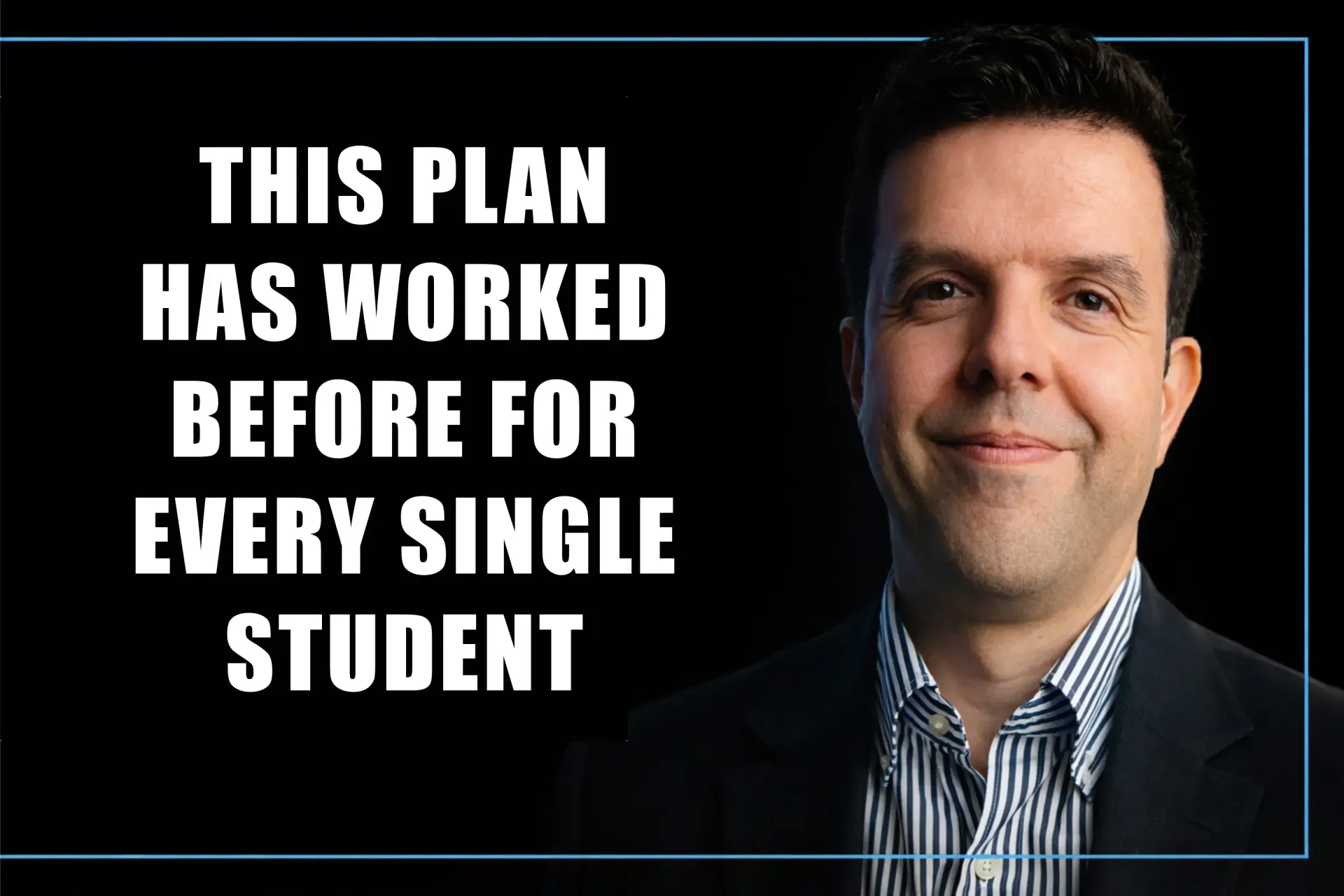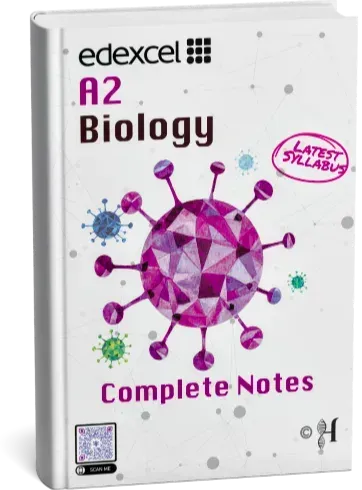How to Actually Stay Focused While Studying for IGCSE Exams
Science-based method to enjoy studying for your IGCSE just like scrolling

You want to study, but your brain keeps pulling you toward your phone. You sit down with good intentions, but 10 minutes in, you're scrolling. Sound familiar?
The problem isn't you. It's how your brain is wired. But the good news? You can rewire it.
Why Your Brain Fights Against Studying
Your brain didn't evolve to care about IGCSE exams. It evolved to survive. That means it's designed to:
- Save energy for things that matter right now
- Chase rewards you can feel immediately
- Avoid hard work when possible
- Studying for exams months away? Your brain sees it as a waste of energy. It would rather you do something that feels good right now—like checking your phone. This isn't laziness. It's biology.
The science: Researchers at the University of California found that when you focus on distant rewards (like exam marks), your brain doesn't release dopamine—the chemical that makes you feel motivated. But when you focus on immediate rewards, dopamine floods your system. This is why scrolling feels easy and studying feels hard. [^1]
The Dopamine Fix: Make Your Brain Love Studying
Here's the key insight: You can train your brain to release dopamine while you study, not just after.
Most students try to stay motivated by thinking about the reward at the end: "If I study hard, I'll get good marks." But your brain doesn't care about marks right now. It only cares about rewards it can feel today.
The solution: Learn to enjoy the process of studying, not just the results.
When you understand a concept that confused you yesterday, or solve a problem you couldn't solve last week, your brain can release dopamine during the effort
. This makes studying feel rewarding in the moment.
The research: A study from Stanford University showed that when people focus on the effort itself—not the end result—their brains release dopamine during work, not after. This makes them 40% more likely to stick with difficult tasks. [^2]
4 Proven Strategies to Build Real Motivation
1. Study One Small Topic at a Time
Don't plan to "study Biology." Plan to "understand photosynthesis" or "learn how the heart works."
Small goals trigger dopamine. Big, vague goals feel endless and drain motivation.
Why it works: Research from the University of Toronto found that students who set specific, small goals completed 65% more of their study plans than students with vague goals. [^3]
What to do:
- Write down 1-2 specific topics you'll study each day
- Study each topic for 45-90 minutes max
- When you finish, write one sentence explaining what you learned
2. Use Active Recall, Not Passive Reading
Passive reading = your brain on autopilot. Active recall = your brain actually learning.
Active Recall Study Techniques
What to avoid vs. what actually works
| What NOT to do | What TO do |
|---|---|
| Read your notes multiple times | Use flashcards and quiz yourself |
| Highlight textbook passages | Summarize lessons in your own words |
| Copy notes from class | Explain concepts out loud like you're teaching |
| Skim past papers | Solve past paper questions without looking at answers |
The evidence: A meta-analysis of 317 studies found that active recall is 50% more effective for learning than passive reading. [^4]
How to get started:
- Make flashcards with questions on one side, answers on the back
Explain each concept out loud as if teaching a friend
Create mind maps connecting ideas together
Solve practice problems without looking at solutions first
3. Track Your Progress With Past Papers
When you attempt a past paper and score 40%, that's your baseline. When you attempt the same paper three weeks later and score 65%, that's progress your brain can see. And seeing progress releases dopamine.
The research: A study from Harvard Business School found that progress is the #1 driver of motivation. Workers who could see their progress were 40% more motivated than those who couldn't. [^5]
What to do:
- Start with topic-specific questions (easier, builds confidence)
- Progress to full past papers (harder, shows real improvement)
- Keep a simple record of your scores
- Watch your scores climb over weeks and months
4. Pause and Acknowledge Every Win
After solving a hard problem or understanding a tricky concept: Stop. Acknowledge it.
Say it out loud: "I didn't understand this last week. Now I do."
This isn't motivational fluff. You're teaching your brain that effort = reward. Over time, your brain learns to crave that feeling.
The science: Neuroscientists at MIT found that acknowledging small wins activates the same reward centers in your brain as achieving big goals. [^6]
What NOT to Do (The Motivation Killers)
Don't Reward Yourself Before You Study
If you scroll on your phone, eat snacks, or watch videos before you study, your brain already got its dopamine hit. Now studying feels like work with no payoff.
What to do instead: Save rewards for after you've earned them through effort.
Don't Study in Distracting Environments
Your phone buzzing, people talking, or notifications popping up drain your motivation before you even start.
The research: A study from the University of Chicago found that just having your phone visible (even if off) reduces focus by 20%. [^7]
What to do:
- Study in a quiet space
- Put your phone in another room
- Close all browser tabs except what you need
- Tell friends you're studying and don't want to be disturbed
Don't Cram
Studying for 8 hours the night before an exam is less effective than studying 1 hour per day for 8 days.
The evidence: Research on spaced repetition shows that reviewing material multiple times over weeks is 300% more effective than cramming. [^8]
What to do: Study 30-60 minutes every day, even if it's short.
Your Simple 4-Week Plan
Week 1: Get Organized
- Get the full IGCSE syllabus for your subjects
- Break it into 10-15 topics
- Create a simple list or spreadsheet
Week 2: Start Active Studying
- Study one topic per day using flashcards or active recall
- After each topic, pause and acknowledge what you learned
- No past papers yet—just focus on understanding
Week 3: Practice With Past Papers
- Attempt topic-specific past paper questions
- Keep track of your scores
- Don't look at answers until you've tried
Week 4: Reflect and Adjust
- Review which study techniques actually worked for you
- Identify topics you're still struggling with
- Plan next month based on what you learned
The Bottom Line
Your brain isn't broken. It's just wired for survival, not for exams. But you can retrain it.
When you:
- Study one small topic at a time
- Use active recall instead of passive reading
- Track progress with past papers
- Acknowledge effort as the reward
...your brain learns that studying feels good. Motivation stops being a battle and becomes automatic.
By June 2026, you won't just pass your IGCSEs. You'll have built a brain that loves learning.
Resources to Get Started
- Vikaasa School – IGCSE preparation guide with study planning tips
- Cambridge Assessment International Education – Download past papers and syllabus documents directly from your exam board
- [^1]: Kounios, J., & Beeman, M. (2014). "The Aha! Moment: The Cognitive Neuroscience of Insight." Current Directions in Psychological Science, 23(4), 253-259. University of California research on dopamine and distant vs. immediate rewards.
- [^2]: Dweck, C. S. (2006). Mindset: The New Psychology of Success. Random House. Stanford University research on effort-based motivation and dopamine release.
- [^3]: Locke, E. A., & Latham, G. P. (2002). "Building a Practically Useful Theory of Goal Setting and Task Motivation." American Psychologist, 57(9), 705-717. University of Toronto study on specific vs. vague goals.
- [^4]: Dunlosky, J., Rawson, K. A., Marsh, E. J., Nathan, M. J., & Willingham, D. T. (2013). "Improving Students' Learning With Effective Learning Techniques: Promising Directions From Cognitive and Educational Psychology." Psychological Science in the Public Interest, 14(1), 4-58. Meta-analysis of 317 studies on active recall vs. passive reading.
- [^5]: Amabile, T. M., & Kramer, S. J. (2011). The Progress Principle: Using Small Wins to Ignite Joy, Engagement, and Creativity at Work. Harvard Business Review Press. Harvard Business School research on progress as motivation driver.
- [^6]: Schultz, W. (2002). "Getting Formal With Dopamine and Reward." Neuron, 36(2), 241-263. MIT neuroscience research on reward centers and acknowledgment of wins.
- [^7]: Thornton, B., Faires, A., Robbins, M., & Rollins, E. (2014). "The Mere Presence of a Cell Phone May Be Distracting: Implications for Attention and Learning." Social Psychology, 45
- (6), 479-488. University of Chicago study on phone visibility and focus.
- [^8]: Cepeda, N. J., Pashler, H., Vul, E., Wixted, J. T., & Rohrer, D. (2006). "Distributed Practice in Verbal Recall Tasks: A Review and Quantitative Synthesis." Psychological Bulletin, 132(3), 354-380. Research on spaced repetition effectiveness vs. cramming.
Try a free Class
IGCSE and IAL Guide for 2025 - 2026 Exams















